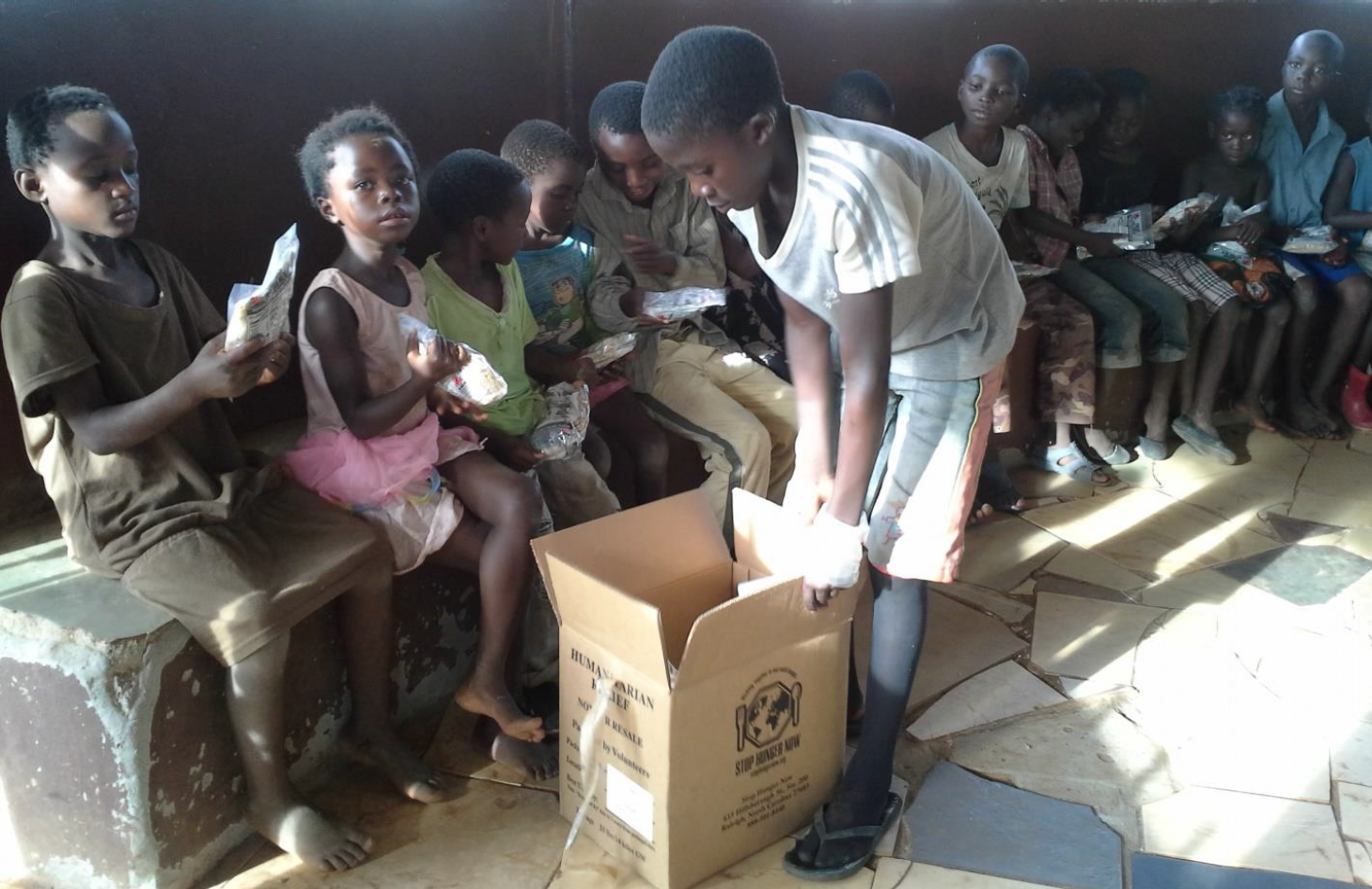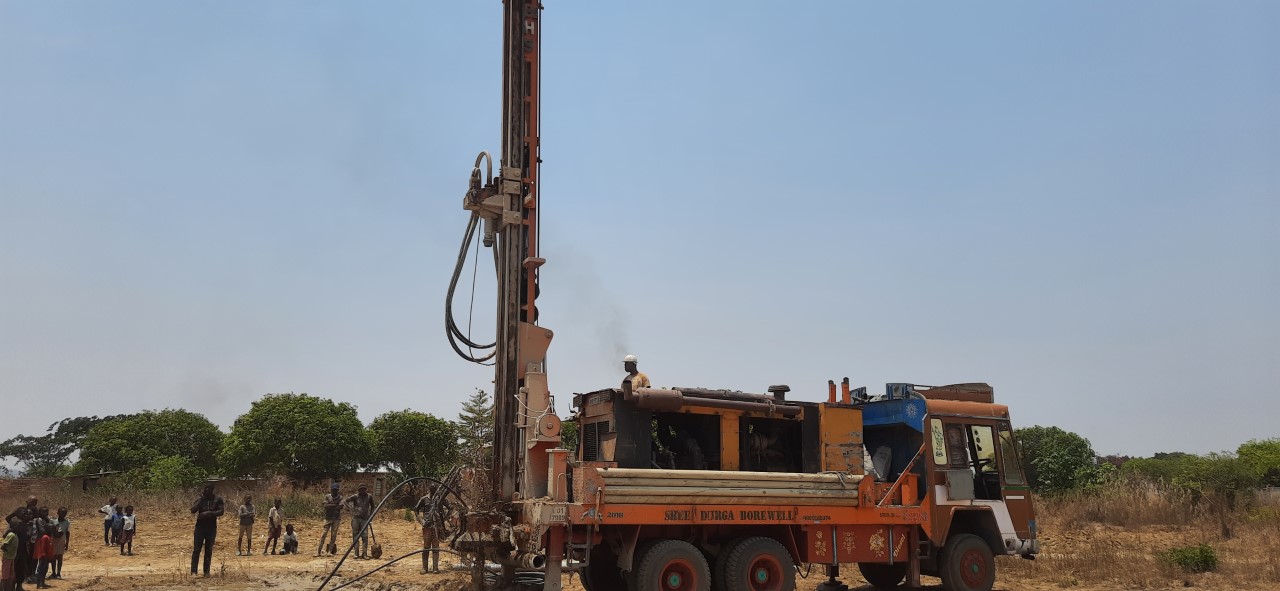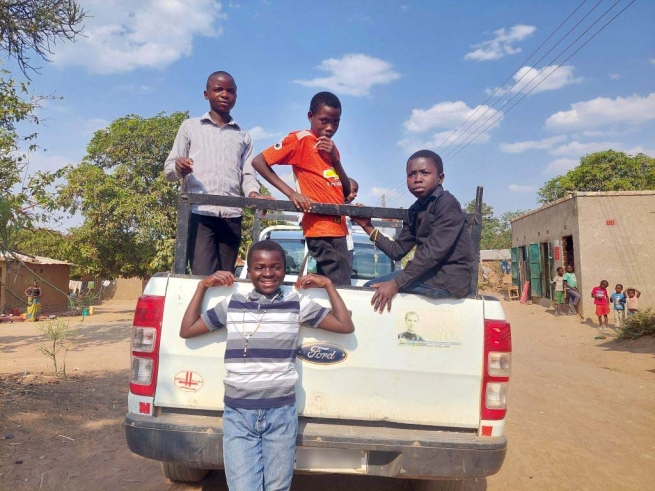ZAMBIA: Salesian Missions Gifts-in-Kind Program Makes a Difference for Those in Need

(MissionNewswire) Youth, the elderly and those who are sick participating in Salesian-run programs in Zambia have received access to better nutrition thanks to recent shipments of fortified rice-meals. The donation was made possible through an ongoing partnership between Salesian Missions and Stop Hunger Now, an international relief organization that provides food and life‐saving aid to the world’s most vulnerable.
In the first half of 2016, more than 3,000 packages of fortified rice were distributed. The rice is packed with soya bean and other natural vital ingredients. It is easy to cook and very nutritious for families receiving it. This distribution has been well received by the people in the villages and shanty towns in Zambia, particularly the poor families in Bauleni Township and village children in rural areas like Lufubu in the Luapula Province. Salesian programs across Zambia have received six containers of rice-meals from Stop Hunger Now and two other shipments of office furniture and other items this year.
While distributing the food donation, Salesian missionaries were also able to deliver other donated items including clothes, bathing soap, sports attires, office furniture, and water purifiers. These items were as part of the Salesian Missions Gifts-in-Kind program to help support Salesian programs in more than 130 countries around the globe. Some of their partners include Stop Hunger Now and the Institution Recycling Network (IRN), an organization that matches surplus items with organizations and people who need them.
The donated items were distributed to those living in poverty and who are sick taking part in programs like the Home Based Care of the Archdiocese of Lusaka, Bauleni Home Based Care, Kalingalinga Hospice, St Barnabas Hospice, Chilanga Hospice, Cheshire Homes, Williams Home and St Luke Mission Hospital in Mpanshya,. Distributions of food aid and other items were also distributed through Salesian schools and youth centers.
“The food being provided is nutritious and it gives us energy,” says Linda Ngandu, a single mother of three. “I appreciate Stop Hunger Now for the food and would like all the donors to know how much we appreciate their support.”
As a result of these donations, Salesian schools and centers have become attractive and popular with local families. In some centers and schools the fortified rice has been given a nickname “vi musanina”, which in the local language means “you will gain weight or you will grow healthy.”
“Access to nutritious meals allows youth to be better prepared to take part in school activities and focus on their education,” says Father Mark Hyde, executive director of Salesian Missions, the U.S. development arm of the Salesians of Don Bosco. “Prepared students are more likely to learn valuable skills that will help them gain employment and break the cycle of poverty in their lives while enabling them to give back to their communities.”
Working and living in the communities they serve, Salesian missionaries are perfectly positioned to ensure that distributions of food and other aid reaches those who need it most. Operating primary schools, technical training centers, agricultural schools, youth centers, orphanages and programs for street children, Salesian missionaries are on the front lines assessing what youth and their families need most.
“Salesian missionaries are an integral part of the existing infrastructure in many countries and Salesian Missions plays an important role in making sure aid from the United States reaches its destination country and gets into the hands of those who need it most,” adds Fr. Hyde.
Poverty is widespread in Zambia with 64 percent of the total population living below the poverty line. For those living in rural areas, the poverty rate rises to 80 percent, according to UNICEF. Over the past three decades, incomes in Zambia have fallen steadily and people do not have enough money to meet basic needs such as shelter, nutritious food and medical care.
The HIV/AIDS epidemic has taken its toll on Zambia’s children. More than 20,000 households in the country are headed by children whose parents have died because of HIV/AIDS. Many of these young children are desperate for adult support to help meet their basic needs.
Sources
UNICEF – Zambia




